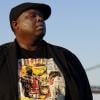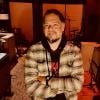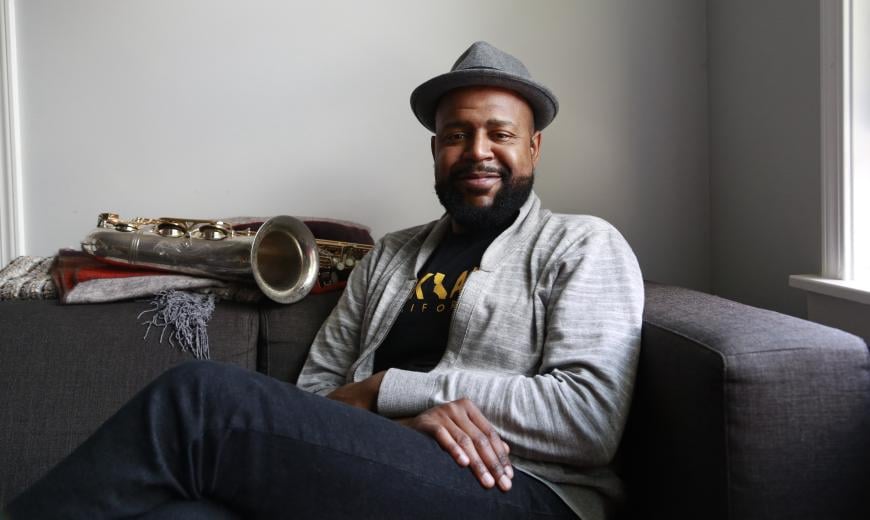
No matter what size the stage, Howard Wiley thinks and plays big.
A few weeks ago, in his first stint as an SFJAZZ resident artistic director, the Oakland saxophonist transformed the Joe Henderson Lab into a raucous dance party-cum-revival meeting with his “Saturday Night to Sunday Morning” program featuring a ridiculously talented cast, including Camille Thurman on flute and vocals and Damien Sneed on piano, organ, and vocals.
Sneed may have been making his SFJAZZ debut, but he’s a polymathic creative whirlwind who plays concert halls around the world while collaborating with giants in jazz, classical, pop, and R&B, including Aretha Franklin, Stevie Wonder, and Jessye Norman (he’s featured on Norman’s final recording, 2019’s Bound for the Promised Land).
Back in town April 4 to serve as musical director for Alvin Ailey American Dance Theater’s first live-music performance of Ailey’s iconic Revelations at UC Berkeley’s Zellerbach Hall, Sneed is part of a vast web of musical luminaries who recognize Wiley as a similarly formidable force.
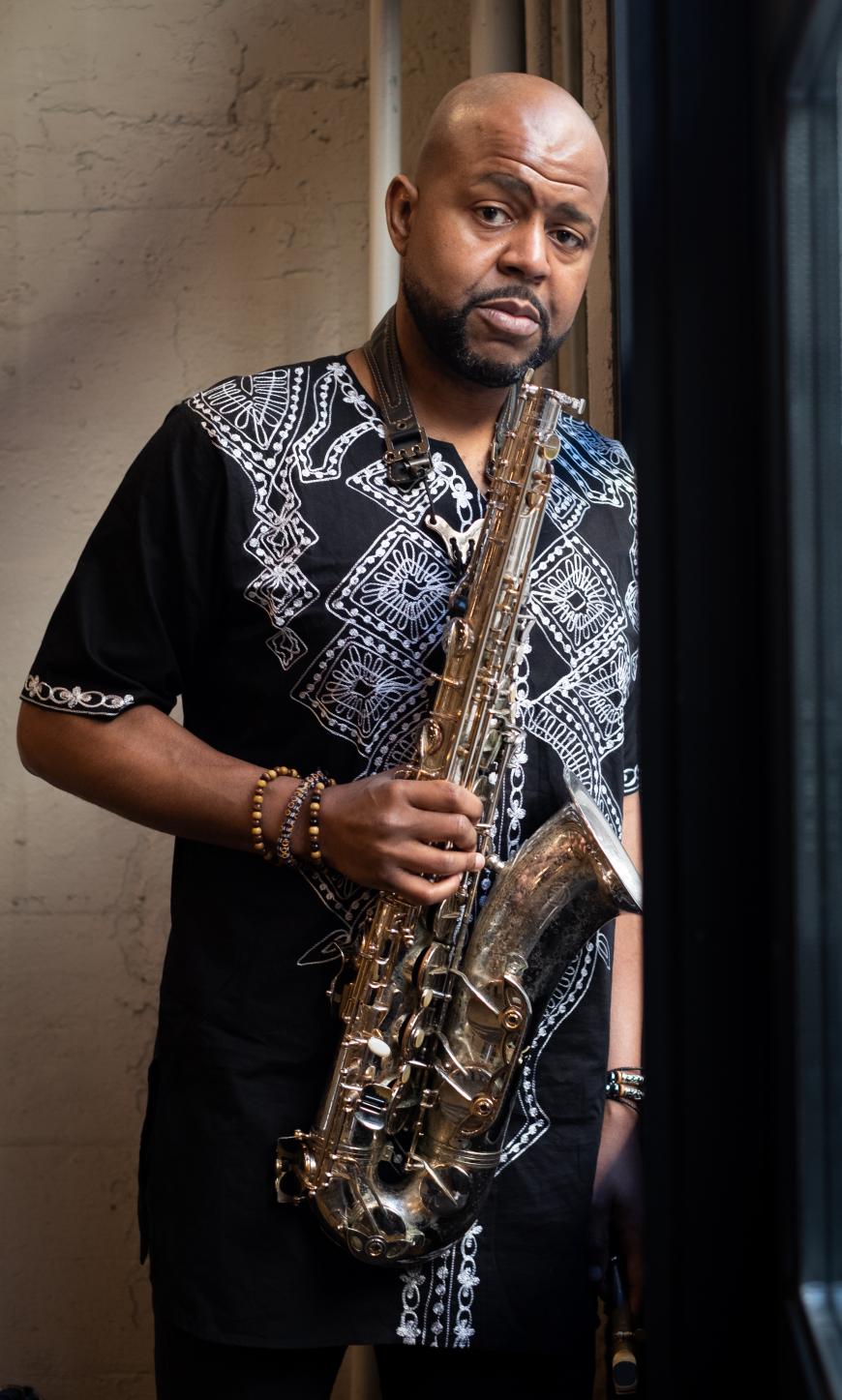
“We met in the Grammy Band, and he was in the choir,” Wiley said about Sneed, referring to a high school program sponsored by the Recording Academy that brought together future stars such as saxophonists Kamasi Washington and Casey Benjamin, bassists Miles Mosley and Carlos Henriquez, and pianist Orrin Evans. “I was the baby of the group, constantly getting my butt kicked, which was great.”
As Wiley describes his formative years, it’s amazing he can still sit down after getting his posterior pummeled by a succession of older players, like veteran jazz and blues vocalist Faye Carol. Rather than beating him down, all that tough love has made him one of the tallest trees on the West Coast. More than a local legend, Wiley has attained the kind of stature that usually requires a record label, booking agent, and publicity team.
He returns to the SFJAZZ Center on March 23, but instead of drawing directly on sacred music, he’s bringing an infusion of funk and soul to Miner Auditorium with “California Love.” It’s another concept concert featuring a glittering cast, with Kev Choice on piano and keyboards, former SFJAZZ Collective trombonist Robin Eubanks, rising Los Angeles trumpeter Tatiana Tate, and vocalists Martin Luther McCoy and China Moses (a rising star who’s also the daughter of NEA Jazz Master Dee Dee Bridgewater).
Berkeley-born comic Chris Riggins, who’s been opening for Dave Chappelle recently, serves as host for an evening that Wiley has designed as “a nonstop party,” the saxophonist said. “I’m bringing back the fun. This is a whole ’nother level, a tribute to Cali greatness and creativity.”
Growing up in Oakland in the 1990s, playing in church, Wiley was also connected directly to the East Bay’s seminal vein of funk and R&B through his early mentors, like the late organist and trumpeter John Turk, who played with Sly Stone before launching his own influential band, John Turk & The 3rd Street Annex.
“I played with Lenny Williams for years, and I played with Chester Thompson, so I’ve got that Tower of Power and Santana thing,” Wiley said. “For this concert we’re mixing all our stuff together. We’re going to do a mashup of some Dr. Dre with ‘Hotel California’ and some Dre with the Red Hot Chili Peppers. It’s going to be crazy.”
What’s crazy is that far too many music fans in the Bay Area don’t realize how highly Wiley is regarded by his peers. Talk to musicians in New York, Chicago, and Los Angeles, and they’ll sing his praises. When piano star Jason Moran presented the West Coast premiere of Two Wings: The Music of Black America in Migration at Zellerbach in 2022, he featured two musicians alone onstage, trumpeter Ambrose Akinmusire and Wiley.
“We want the public to know who he is,” said Moran, a MacArthur Fellow and The Kennedy Center’s artistic director for jazz.
One reason why he’s sometimes seen as simply a talented local cat is that Wiley hasn’t released an album under his own name since 2010’s acclaimed 12 Gates to the City, a project that delved deeply into spirituals gleaned from Angola, the notorious Louisiana prison. But over the past decade, Wiley has made numerous appearances on memorable recordings, like on Chester Thompson’s 2012 album Mixology, the Hammond B3 organ great’s first album under his own name in four decades.
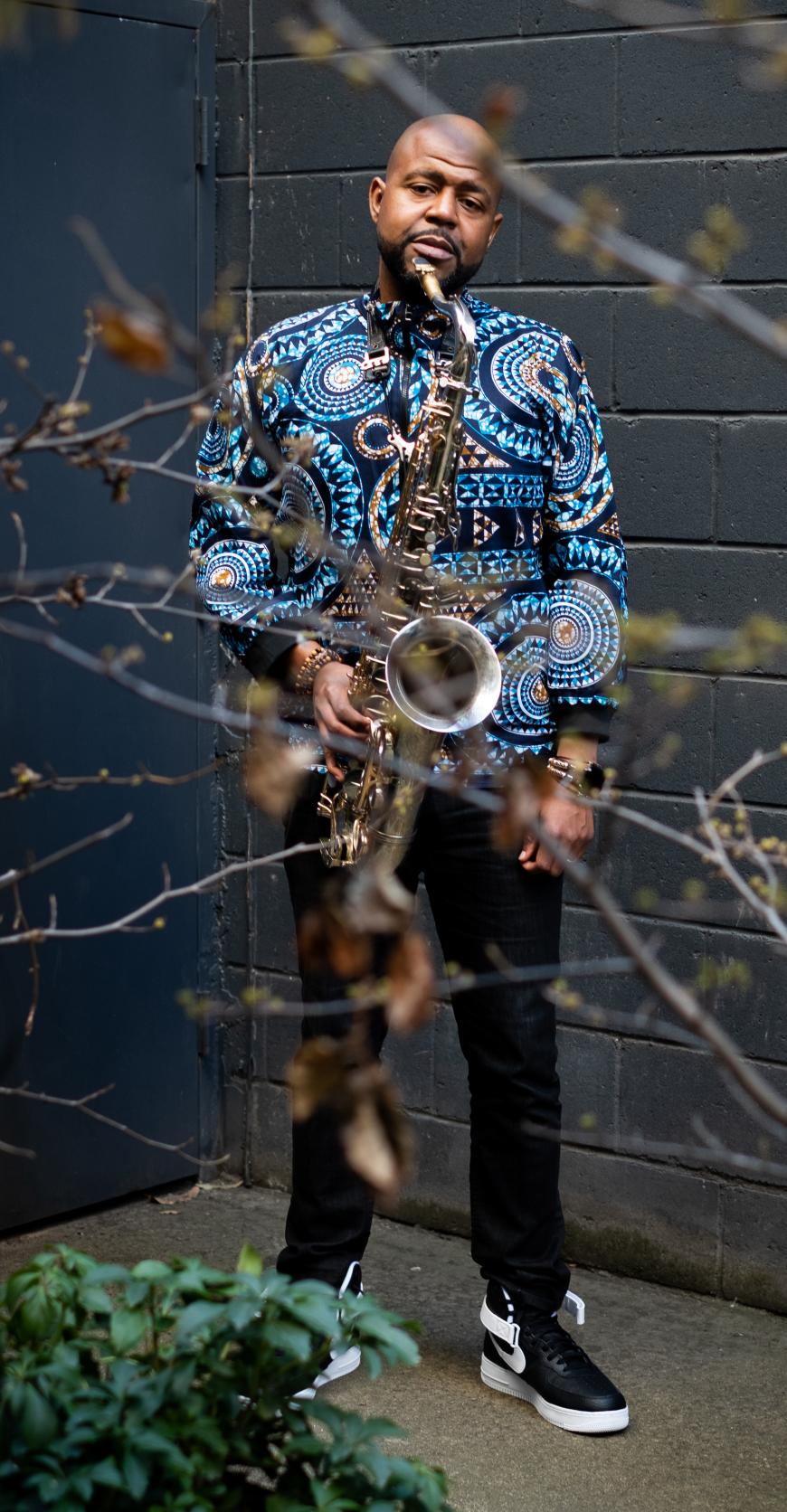
When it came time to record his 2016 debut album The Beast, drummer Jerome Jennings brought Wiley out to New York City to collaborate with fellow heavyweights, like bassist Christian McBride, trumpeter Sean Jones, and vocalist Jazzmeia Horn. L.A. bass star Miles Mosley, best known for his collaborations with Kamasi Washington and hip-hop star Kendrick Lamar, brought Wiley in as a Bay Area ringer on 2017’s Uprising. There’s no lack of saxophone talent in L.A., but Mosley wrote in an email that Wiley “possesses a rare form of focus and aggression in his playing, a sound that is at once heroic and determined.”
Wiley has played a key role in the evolution of the Ethio-jazz-based body of music created by Addis Ababa-born, San Francisco-based singer-songwriter Meklit, both on her 2017 album When the People Move, The Music Moves Too and her new EP Ethio Blue. She described him as “a genius on his instrument who can bring the rawness of a blues cry or a field holler all the way through the lushness of a ballad. He has a deep love of not only jazz but of all kinds of African music, too.”
Wiley often plays the jokester onstage, razzing people in the audience or fellow musicians. But what sets him apart is the capacious nature of his mind. He’s both of the metaphoric animals famously defined by philosopher Isaiah Berlin. Like the hedgehog who knows one big thing, Wiley sees far-flung idioms of Black music as growing from kindred roots. And like the fox who knows many things, he’s delved down to absorb the different practices and sounds that have bloomed in various patches of soil.
Whenever possible, he’s sought out information directly from the source, which is how he ended up joining Lavay Smith & Her Red Hot Skillet Lickers. At the time Wiley started touring with the group, in 2000, the band featured a veteran horn section: trombonist Danny Armstrong, Louisiana-reared tenor saxophonist Jules Broussard, trumpeter Allen Smith (1925–2011), and Chicago-reared alto saxophonist Bill Stewart (1924–2007), who grew up with tenor sax great Gene Ammons.
“We all went on the road together in vans, hearing their stories,” said Skillet Lickers pianist and bandleader Chris Siebert. “And Howard soaked it all up.” When the drum chair in the band opened up around 2009, Wiley slid in, and he’s held it down ever since.
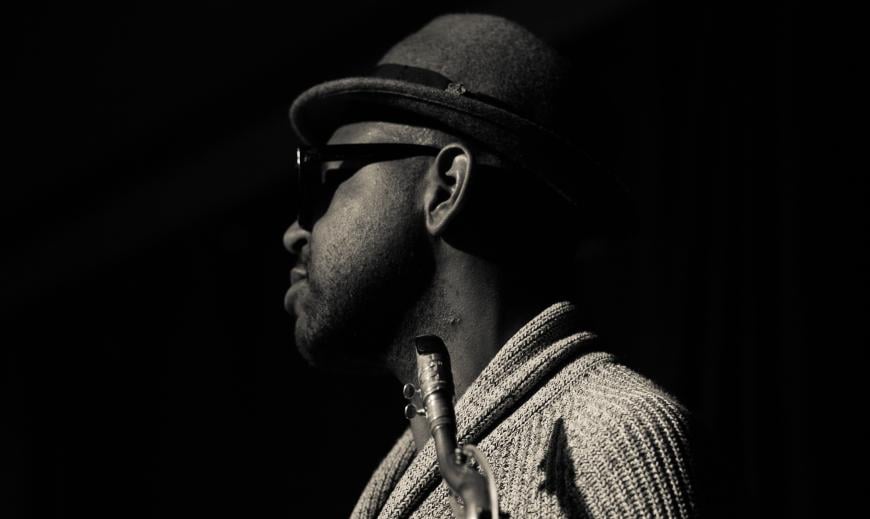
In many ways, Wiley’s skills on the trap set reveal the secret to his approach as a horn player. He likes to cite James Brown, who famously pointed to Fred Wesley’s trombone and asked him what it was. When Wesley gave him the obvious answer, Brown responded, “No, it’s not. It’s a drum.”
“Having a good understating of that rhythm component, an insider’s view, changes everything,” Wiley said. “This isn’t original with me. Trane played drums. Chick played drums. Miles said you have to understand something about piano and the drums. My thing is really understanding that beat placement and rhythm.”


